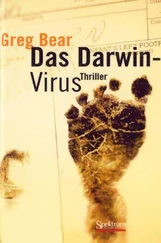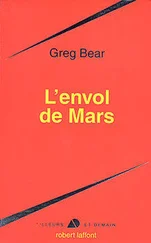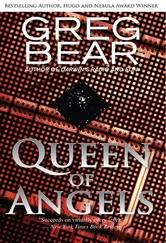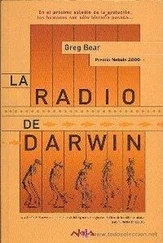“What am I to you?” would bring in reply:
Father/Mother/Universe
World-Challenge Source of all
Ancient, slow
Mountain-galaxy.
And he could spend hours replaying the sensual complexes which accompanied the words: the taste of his own blood serum, the fixed tissues of his body, the joy at nutrition being diffused, the necessity of cleansing, protecting.
In the quiet of night, lying on his cot with only infra-red scanners trained on him and the ubiquitous sensors taped to his body, he swam in and out of his own dreams and the cautious, almost reverent inquiries and replies of the noocytes. Now and then, he would awaken as if alerted by some mental guard dog that a new territory was being probed.
Even in the day, his sense of time became distorted. The minutes spent conversing with the cells felt like hours, and he would return to the world of the containment chamber with a disconcerting lack of conviction about its reality.
The visits by Paulsen-Fuchs and others seemed to come at longer intervals, though in fact the visits were made at the same established times each day.
At three P.M., Paulsen-Fuchs arrived with his elaborations of the news reports Bernard had read or seen earlier that morning. The news was invariably bad and getting worse. The Soviet Union, like an untamed horse set loose, had now left Europe panicked and bristling with helpless rage. It had then retreated into sullen silence, which reassured no one. Bernard thought briefly of these problems, then asked Paulsen-Fuchs what progress there was on controlling the intelligent cells.
“None. They are obviously in control of all the immune system; other than having an increased metabolic rate, they are very thoroughly camouflaged. We believe they can now neutralize any anti-metabolite before it begins to work; they are already alert to inhibitors like actinomycin. In short, we cannot damage them without damaging you.”
Bernard nodded. Oddly, that didn’t concern him now.
“And you are, now, communicating with them,” Paulsen-Fuchs said.
“Yes.”
Paulsen-Fuchs sighed and turned away from the triple glass. “Are you still a human, Michael?”
“Of course I am,” he said. But then it occurred to him that he was not, that he had not been just a human for more than a month. “I’m still me, Paul.”
“Why have we had to snoop to find this fact?”
“I wouldn’t call it snooping. I assumed my entries were being intercepted and read.”
“Michael, why haven’t you told me ? I am foolishly hurt. I assumed I was an important person in your world.”
Bernard shook his head and chuckled. “You are indeed, Paul. You’re my host. And as soon as I figured out precisely what to say, in speech, you would have been told. Will be told. The dialogue between the noocytes and myself is just beginning. I can’t be sure we don’t still have fundamental misunderstandings.”
Paulsen-Fuchs stepped toward the viewing chamber hatchway. “Tell me when you are ready. It could be very important,” he said wearily.
“Certainly.”
Paulsen-Fuchs left the chamber.
That was almost cold, Bernard thought I was behaving like someone suspended from society. And Paul is a friend.
Yet what could he do?
Perhaps his humanity was coming to an end.
On the sixtieth floor, Suzy realized she would not be able to climb any higher that day. She sat in an executive chair behind a sprawling executive desk (she had pushed the executive’s gray suit and fine silk shirt and alligator shoes into a corner) and looked through the window at the city some six hundred feet below. The walls were covered with real wood paneling and signed Norman Rockwell prints in buffed bronze frames. She ate a cracker with jam and peanut butter from her plastic shopping bag and sipped on a bottle of Calistoga mineral water from the executive’s well-stocked bar.
A brass telescope mounted in the window gave her great views of her home neighborhood, now thickly shrouded with the leathery brown stuff, and whatever else she wanted to look at to the south and the west. The river around Governors Island no longer looked like water. It looked muddy and frozen, and peculiar solidified waves spread out in circles to meet other waves from Ellis Island and Liberty Island. It looked more like raked sand than water, but she knew it couldn’t have turned into sand.
“You must have been very rich, made a lot of money,” she said to the gray suit and silk shirt and shoes. “I mean, this is nice and fancy. I’d thank you if I could.” She finished her bottle and dropped it into a wooden trash basket under the desk.
The chair was comfortable enough to sleep in, but she hoped to find a bed. She had seen rich executives on the old television with private bedrooms in their office suits. This office certainly looked fancy enough. She was too tired to search for a bedroom right now, however.
The sun descended over New Jersey as she massaged her cramped legs.
Most of the city, what she could see of it, was covered with brown and black blankets. There was no better description. Someone had come along and wrapped surplus army blankets all the way to the tenth or twentieth floors of all the buildings in Manhattan. Occasionally she saw vast sheets of the material rise up and sail away, just as they had in Brooklyn, but there was less of that activity now.
“Good-bye, sun,” she said. The tiny red arc dipped and vanished, and for the first time in her life she saw, in the last second of refracted light a brief flash of green. She had been told about that in high school, and the teacher had said it was very rare (and hadn’t bothered to explain what caused it) and now she grinned with pleasure. She had actually seen it.
“I’m just privileged, that’s all,” she said. An idea began to form. She wasn’t sure whether it was one of her weird touches of insight, or whether it was just some daydream. She was being watched. The brown was watching her, and the river. The piles of clothes. Whatever the people had turned into was watching her. It wasn’t an unpleasant sort of watching, because she knew she pleased them. She wouldn’t be changed as long as she kept on doing what she was doing.
“Well, gotta search for my bed now,” she said, pushing up from the chair. “Nice office,” she said to the gray suit.
Beyond the secretary’s desk in the outer office was a small unmarked door. She tried it and found a closet full of forms and papers stacked on shelves, with supplies lower down and an odd little box with a glowing red light. Something was still feeding the box electricity. Maybe it was a burglar alarm, she thought, working off batteries. Maybe it was a smoke detector. She closed the door and went the opposite direction. Around the corner from the big office was another door, this one marked with a brass plaque saying PRIVATE. She nodded and tried the knob. It was locked, but she was already an expert pilferer of keys. She picked out a likely candidate from a desk drawer and inserted it. The second choice worked. She turned the knob and opened the door.
The room was dark. She flicked the flashlight switch. The wide beam swept a comfortable-looking bed, nightstand, a table with small computer in one corner, and—
Suzy screamed. She heard a thump and out of the corner of her eye saw a small thing move under the desk, and other things under the bed. She lifted the light. A pipe rose beside the bed. On top of the pipe was a round object with many flat triangular sides and strings hanging from each side. It swayed and tried to avoid the light. Something small and dark scampered past her feet and she jumped back, pointing the light at her shoes.
Читать дальше












